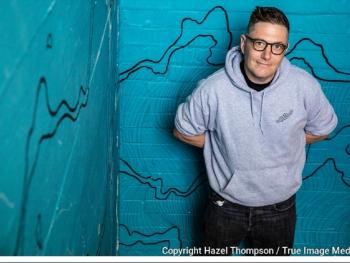
Quick summary
I was told “Restorative Justice” would not be an easy thing to do. Pacing the room restlessly, I wondered for the hundredth time why I had agreed to this. I left my home and began the short walk to the meeting, the door closing behind me with a loud click.
I tried to put on a confident air but my mask soon slipped as I mingled with my grey clad fellows. You see, I was not the victim of a crime, I was its perpetrator.
As offenders, we all believed we were special. And whether our crime was shoplifting or murder, we all had our reasons, our excuses and explanations. Our sometimes subconscious psychological acceptance of the antisocial behaviour we committed. The “Yeah I did this, but I’d never do this”
Denial of simple truth.
There are no victimless crimes.
Arriving at the special visits area I spied the familiar form of the RJ facilitator sitting with a man I had never met, but whose life I had damaged. Out of respect for the integrity of the programme and the victim Mr M I will not share the exact details of our conversation.
After explaining the impact my crime had on him, his finances and his mental health, he admirably, patiently, listened to my side. I became quite emotional as we shook hands. We could, finally – victim and perpetrator – meet as people. He was not just a faceless case number to me, nor was I a terrifying monster to him.
The feeling of release and joy as he forgave me was nothing short of a moment of clarity in my life. If this man whom I had wronged could see the good in me, then surely I could start to do the same. It is a testament to our conversation that day that I remain clean and sober, as that being one I detail I will share with you.
Mr M declared me a “decent” lad who strayed off path, he asked me to never return to drug use, to serve my time and pay for my crime, and to better myself with the time I had. He asked me to move on.
Five years later, and I am still keeping my promise.

